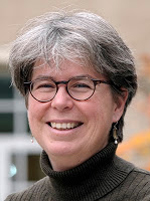It is therefore a holy and wholesome thought to pray for the dead, that they may be loosed from sins. — 2 Maccabees 12:46
The ruined chapel stands on a windswept headland off the western Irish coast. The only way there is to walk, the road ends a couple of miles away. A small cemetery surrounds the tumbled stones of the church, a dry-stone wall keeps the sheep at bay, the grass is knee deep and heavy with dew.
There are a few graves marked with carved stone crosses; a handful have headstones with neatly carved names and dates ranging back hundreds of years. But most of the graves here are marked only with large unmarked stones, hauled up from the beach below.
As I make my way to the chapel, I keep thinking of all the souls buried here, whose names no one remembers any more, whose graves pass unnoticed by many of the walkers here.
Over and over I repeat the prayers for the dead, “Eternal rest grant unto them, O Lord, and let perpetual light shine upon them…” May they rest in peace.
The feast of All Souls (Monday, Nov. 2) is upon us, reminding us of our obligation to pray for those who have gone before us, marked with the same signs of faith we were at our baptism. The word “obligation” comes from the Latin “to bind,” another reminder to me of the ways we are bound to each other in the Body of Christ, ties that even death cannot sever: we believe in the communion of saints, and life everlasting.
[hotblock]
“Lumen Gentium,” Vatican II’s Dogmatic Constitution on the Church, describes our relationship with the dead: “The union of the wayfarers with the brethren who have gone to sleep in the peace of Christ is not in the least weakened or interrupted, but on the contrary, according to the perpetual faith of the Church, is strengthened by communication of spiritual goods.”
We pray for the dead that they might be freed from the sins that bound them here on earth; they intercede for us before the Father.
It’s one thing to pray that the dead I know — my mother, my first husband — be freed from their sins, and another to pray for the nameless men and women buried in this Irish graveyard. Yet, we are invited by the Church to do just that, to remember the unremembered dead, not only on All Souls but throughout the year.
As the feast approaches, I’m praying each night for all the souls of the faithful departed — those known to me, and those unknown.
To pray: The Church’s traditional prayer for the dead:
Eternal rest grant unto them, O Lord.
And may perpetual light shine upon them.
May the souls of all the faithful departed,
through the mercy of God, rest in peace. Amen.
Requiem aeternam dona eis, Domine.
Et lux perpetua luceat eis.
Fidelium animae, per misericordiam Dei,
requiescant in pace. Amen.
***
Michelle Francl-Donnay is a member of Our Lady of Good Counsel Parish, Bryn Mawr.
PREVIOUS: Why the bias for a priest at Communion time?
NEXT: Pope: God feels compassion for everyone, sent his son to heal humanity



Share this story